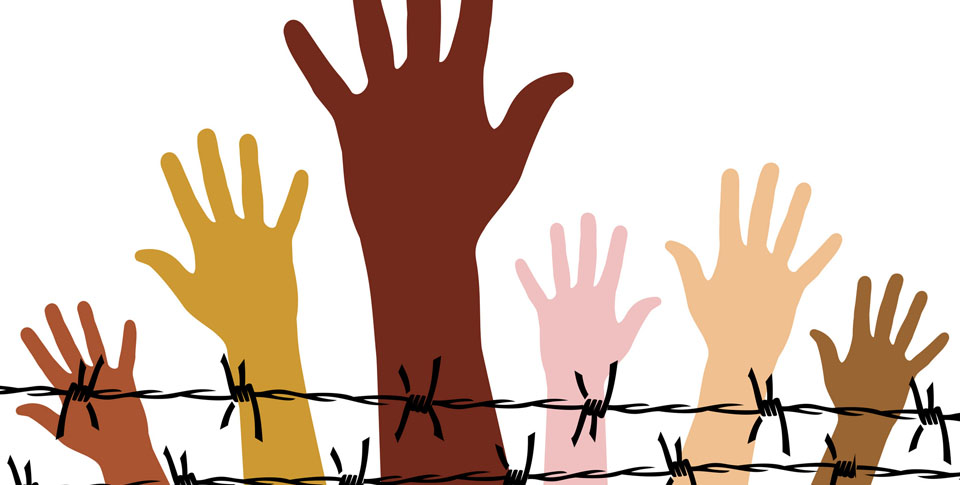Discussion of Islam in Western languages, and latterly much of it in the languages of the Islamic world as well, is bedeviled by polemic and reductionism. Islam itself always seems to be in the dock. One school of thought wishes to prove that Islam as such is responsible for all the abuses and cruelties to be found in the Islamic world, as though such abuses and cruelties were quite unknown elsewhere. Another, in its most extreme form, argues not merely that abuses and cruelties are contrary to Islam properly understood but even that whatever is valuable in other civilisations or systems of thought either is of Islamic origin or, at least,’ is to be found in its most perfect form within Islam. So it is with human rights. There are those who would have us believe that the very notion of human rights is incompatible with Islam, and those who argue that, on the contrary, it derives from the Koran (Qur’an), and/or ‘that only in an Islamic society are such rights fully realised.
In its Arabic text, the Quran is considered the primary source of authority by Muslims. The Quran is a relatively short book of 77,000 words that are divided into one hundred and fourteen chapters (Suras). A hundred and thirteen of the chapters of the Quran begin with an indication of the book’s intent (In the name of God the All- Compassionate and the Ever-Merciful). The book is largely concerned with establishing boundaries that Muslims are prohibited from transgressing. Within these boundaries the Quran treats human beings as equally valuable and endowed with certain rights by virtue of simply being human, hence Human rights. The rights bestowed upon humans in the Quran include the right to life and peaceful living, as well as the right to own, protect, and have property protected, Islamic economic jurisprudence. The Quran also contains rights for minority groups and women, as well as regulations of human interactions as between one another to the extent of dictating how Prisoners of war ought to be treated. Each section includes a Quran verse taken from the articles UN Human Rights Declaration and the Quran and Islam 101: Basic Human Rights.
The Quran states that all humans are the descendants of one man Adam and are therefore brothers to one another. The emphases on equality and justice in the Quran appears throughout the text and even include one’s enemy. The duty of Muslims to be just and truthful enjoys a high priority status, in the Quran, and is described in the following manner, that “O you who believe! Be maintainers of Justice, bearers of witness of Allah’s sake, Though it may be against your own selves or (your) parents or near relatives; if he be rich or poor, Allah is nearer to them both in compassion; therefore do not follow (your) low desires, lest you deviate; and if swerve or turn aside, then surely Allah is aware of what you do”. The Quran, also unequivocally restricts its believers from aiding someone in need of their help only where they intend to deceive or carry out an act of aggression by stating “help one another in goodness and piety, and do not help one another in sin and aggression”. Furthermore, the Quran teaches its followers that treating followers of other religions justly, and kindly is an article of faith.
The difficulties encountered in reconciling human rights, as understood in the West, with Islam do not therefore arise from any conceptual incompatibility. Indeed, while Islam can hardly claim paternity of the actual phrase ‘human rights’ (or ‘rights of man’), which seems to have originated in the West no earlier than in the eighteenth century, it can claim with some plausibility to have come closer to articulating the concept than either of the great monotheistic religions which preceded it. Judaism remains marked by its national or tribal origins: in its classical formulation, at least, the rights guaranteed by God are those of a specific people rather than of mankind as a whole.
Christianity, as interpreted by St Paul, represents a universalized interpretation of Judaic teaching, but also a withdrawal of religion from the legal and political sphere. Rights as such are deemphasized in favor of agape, an unconstrained and unlimited benevolence towards one’s fellow-men which brushes aside mere rights. If the beggar asks for your coat you must give him your cloak also, but it is not clear that that gives him the right to ask for either. In any case, Christianity turns its back on law enforcement. Christ urges his “followers to, ‘judge not, that ye be not judged’, and warns them that ‘my kingdom is not of this world’. In this world he offers not relief from suffering but only strength to bear suffering through the expectation of reward in the next world. The only ‘human right’ guaranteed by the Gospel is that of eternal life.
The United Nations proclaimed the Declaration of Human Rights in 1948. It set out, in 30 articles, the fundamental rights to be universally protected and described them as, designed to promote, “universal respect for and observance of human rights and fundamental freedoms”. The United Nations Office of the High Commissioner for Human Rights went on to describe these rights as inherent to all human beings regardless of sex, race, creed, or colour and declared them indivisible, interdependent, and interrelated. In the following 60 years other declarations, treaties, and committees have come into existence, all focusing their efforts on ensuring the rights of various groups within varied societies. The tenants of Islam include a basic set of rules designed to protect individual rights and freedoms, however the rights of individuals are not permitted to infringe upon the rights of communities.
Islam is a doctrine concerned with respect, tolerance, justice, and equality and the Islamic concepts of freedom and human rights are imbedded in the faith in the One God. If humankind is to live in peace and security, he or she must obey the commands of God. Muslims believe that God is the sole Creator and Sustainer of humankind and the universe. He has given each human being dignity and honour and the human rights and privileges we enjoy are granted by Him. The rights granted by God are designed for everybody. One person is not more worthy of protection than another is. Each person is entitled to sustenance, shelter, and security and if some people are denied their God given rights, it is the responsibility of the rest of humankind to restore those rights. Allah says, “O you who believe! Stand out firmly for God, be just witnesses, and let not the enmity and hatred of others make you avoid justice. Be just: that is nearer to piety, and fear God. Verily, God is well acquainted with what you do.” (Quran 5:8) Power and authority narratives have become entrenched in human rights advocacy. Legislation and unenforceable treaties cannot protect the downtrodden and oppressed. However, Islam proclaims that God treats all human beings equally and true human rights can only be achieved by obedience to Him. In the following series of articles, we will examine the 30 articles of the Declaration of Human Rights and compare them to the Islamic standpoint and the reality of life in the 21st century. The Universal Declaration of Human Rights deals with many issues. It attempts to ensure humankind treat each other with respect and dignity. Islam is a religion that holds respect, dignity and tolerance in very high esteem and the rights and responsibilities inherent in Islam are a declaration of human rights.
One of the most important principles in Islam is that God created humankind to be fully accountable for his actions. Each human being has certain rights and responsibilities and no human being has the right to restrict the freedom of another. Anyone who dares to take away the God given rights inherent in Islam, including the right to human dignity, is called a wrongdoer or an oppressor. God calls on those who obey Him to stand up for the rights of the oppressed. Allah says, “And what is wrong with you that you fight not in the cause of God, and for those weak, ill treated, and oppressed among men, women, and children, whose cry is: “Our Lord! Rescue us from this town, whose people are oppressors; and raise for us from you one who will protect; and raise for us from you one who will help!” (Quran 4:75)
In article four of the Universal Declaration of Human Rights it states that no one shall be held in slavery or servitude; slavery and the slave trade shall be prohibited in all their forms. More than 1400 years ago Islam also tackled the issue of slavery. In the 7th century CE, slavery was entrenched in Arabian society, just as it was in other societies and systems of law. Slaves were acquired easily via, warfare, debt, kidnapping and poverty; thus, prohibiting slavery outright would have been as useless as trying to outlaw poverty itself. Therefore, Islam placed restrictions and regulations on slavery designed to bring about its eventual abolishment. There are no texts in the Quran, or in the traditions of Prophet Muhammad, may the mercy and blessings of God be upon him, that enjoin the taking of slaves but there are countless texts calling for their freedom, including Muhammad’s simple yet deeply profound words, “Visit the ill, feed the hungry and release the slaves.” Islamic law recognized slavery as an institution but restricted the sources of acquisition to one method only, captured prisoners of war and their families. Muslim leaders were encouraged to free prisoners of war or exchange them for ransom. The principle of dealing with slaves in early Islam was a combination of justice, kindness, and compassion. Muslims pay a small portion of their yearly, accumulated income in compulsory charity and one of the lawful ways this money may be used is to free slaves. Freeing slaves is also the expiation for many sins, including breaking vows and accidental killings.
Over the past 200 years, Western culture has slowly abolished slavery but the trade of human beings has not abated. National Geographic estimates worldwide that there are 27 million men, women, and children who are currently enslaved. Although man made declarations and treaties have denounced slavery, ironically, on the open market, a slave is worth less today then he was 200 years ago. Modern day “slaves” who are physically confined or restrained, or forced to work, or controlled through violence have no legal way to purchase their own freedom nor is there any legal body to oversee their treatment. Slavery exists under the radar and is usually associated with drugs, prostitution, and other illegal activities.
The restrictions imposed by Islam gave slaves rights and protection from ill treatment. The act of freeing a slave is a very virtuous act that will bless a person in this life and in the next. Islam has the inherent ability to recognize and regulate the undesirable characteristics of human nature. Slavery and servitude will not be successfully abolished until humankind recognizes that God’s laws are the true embodiment of human rights. The same can be said of torture, and cruel and inhuman punishments. These detestable actions will not cease to exist until humankind as a whole realizes that there is a God and the worship of Him goes beyond coveting the life of this world. Torture exists today even though treaties and declarations including article five of the Universal Declaration of Human rights, call for the abandonment of such ill treatment. Cruelty, including excessive punishment is forbidden in Islam. Each member of the human race is treated with due respect and dignity, regardless of race, colour creed, or nationality. Prophet Muhammad expressly prohibited cruel and unusual punishments even in times of war. He made it clear that no one should be burned alive or tortured with fire, and that wounded soldiers should not be attacked and prisoners of war should not be killed. He said to his followers, “You are neither hard hearted nor fierce of character,” and he warned his people of being unjust, “For injustice shall be darkness on the Day of Requital.” Even prisoners of war in early Islamic history spoke highly of their captors. Blessings be on the men of Medina’, said one of these prisoners in later days, ‘they made us ride while they themselves walked; they gave us wheaten bread to eat when there was little of it, contenting themselves with dates.” The second Caliph of Islam, Omar Ibn Al Khattab said, “A person would not be held responsible for his confession, if you inflicted pain upon him or scared him or imprisoned him [to obtain the confession].”
The Cairo Declaration of Human Rights in Islam states in article 20 that “No one is to be arrested or his freedom restricted, exiled, or punished without adequate legal action. Individuals must not be subjected to physical or psychological torment or any other humiliating treatment.” The enforcement of human rights in Islam is linked inextricably to the implementation of Islamic law. Islam promises that those who follow God’s rules and regulations will be rewarded with His guarantee of eternal Paradise. However choosing to restrict or take away rights given to humankind by God is a punishable offence. “On the Day of Requital, rights will be given to those to whom they are due (and wrongs will be redressed).”
 Eurasia Press & News
Eurasia Press & News




